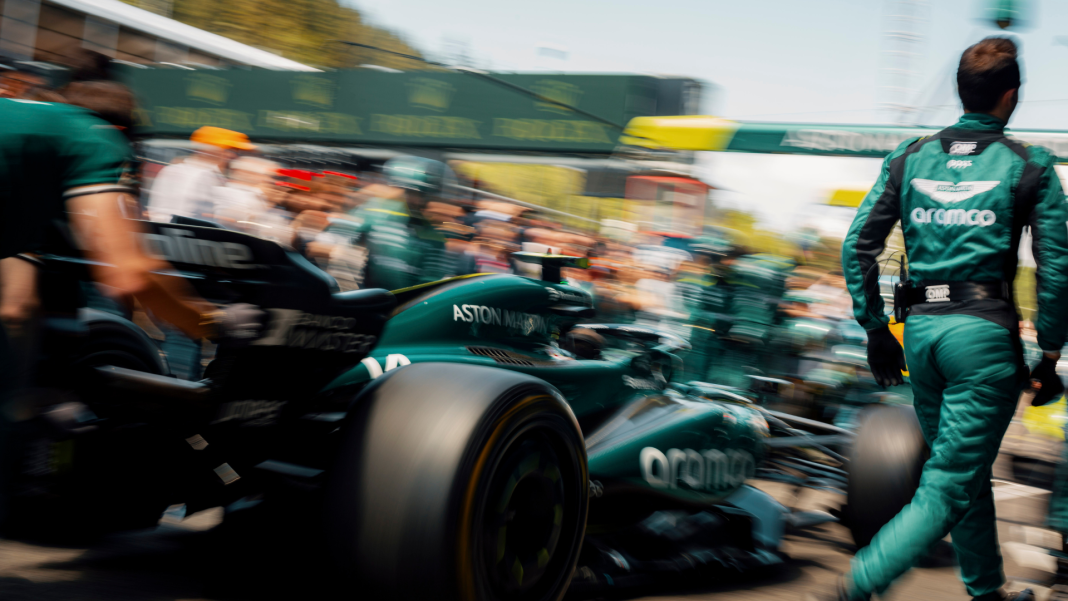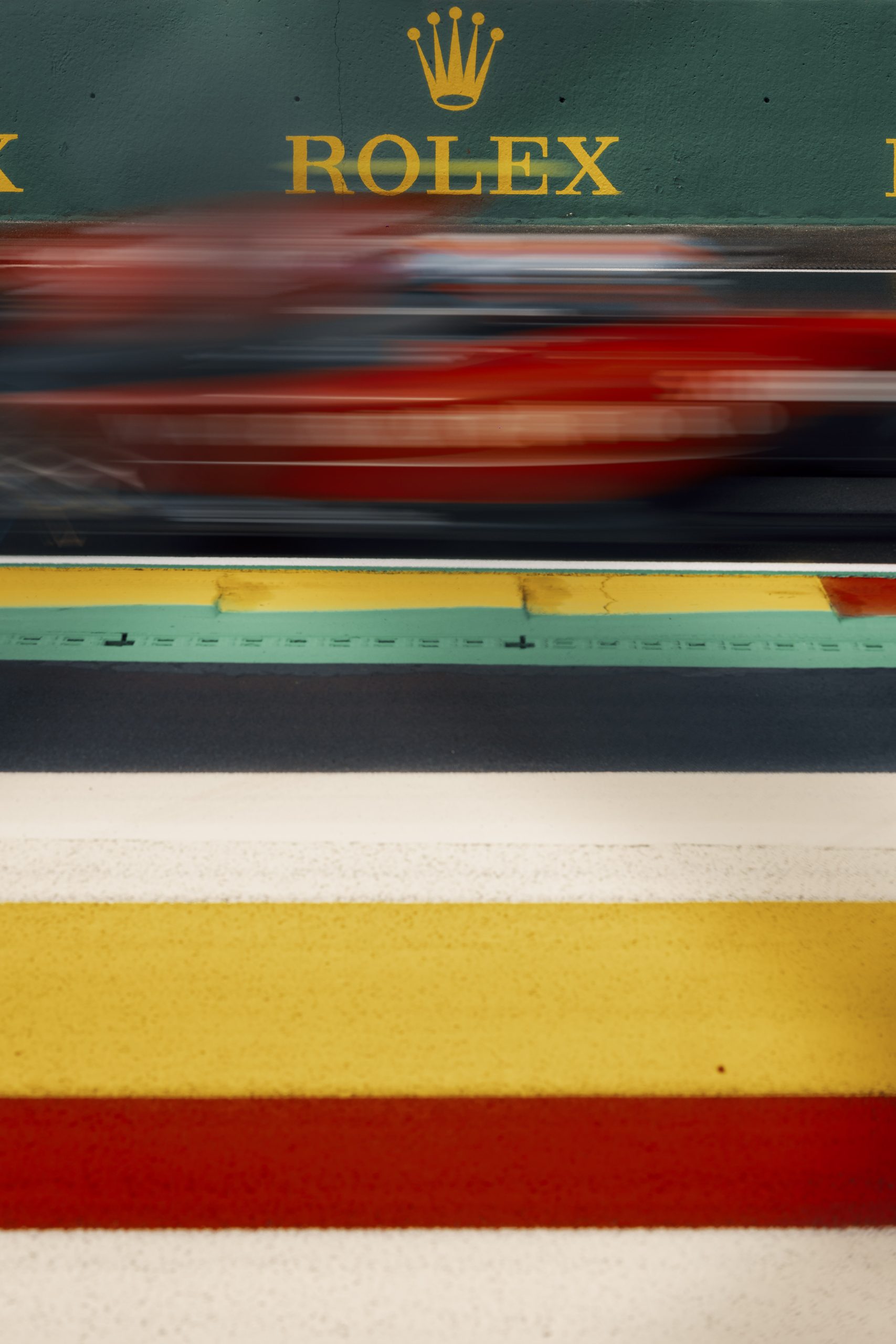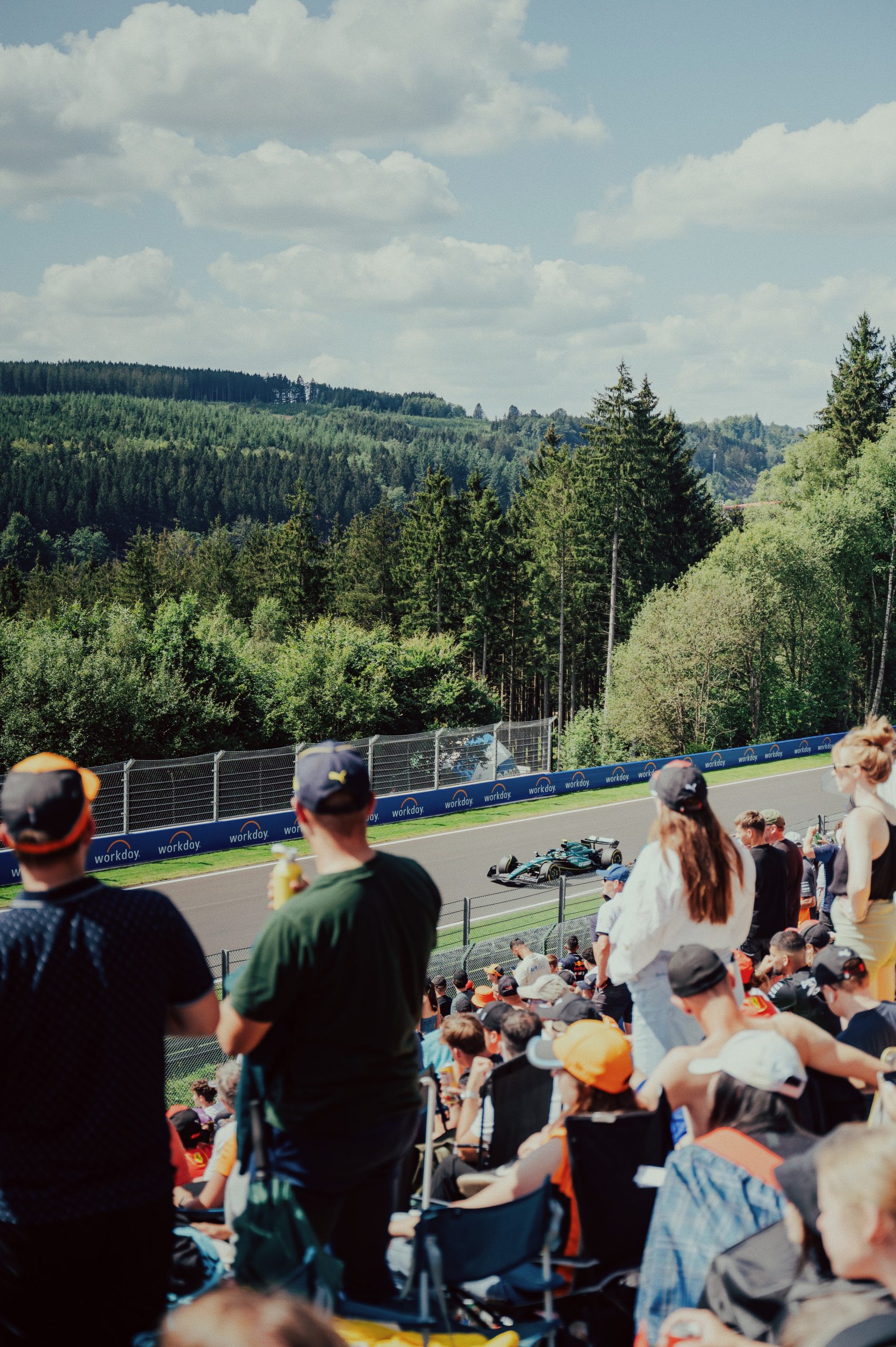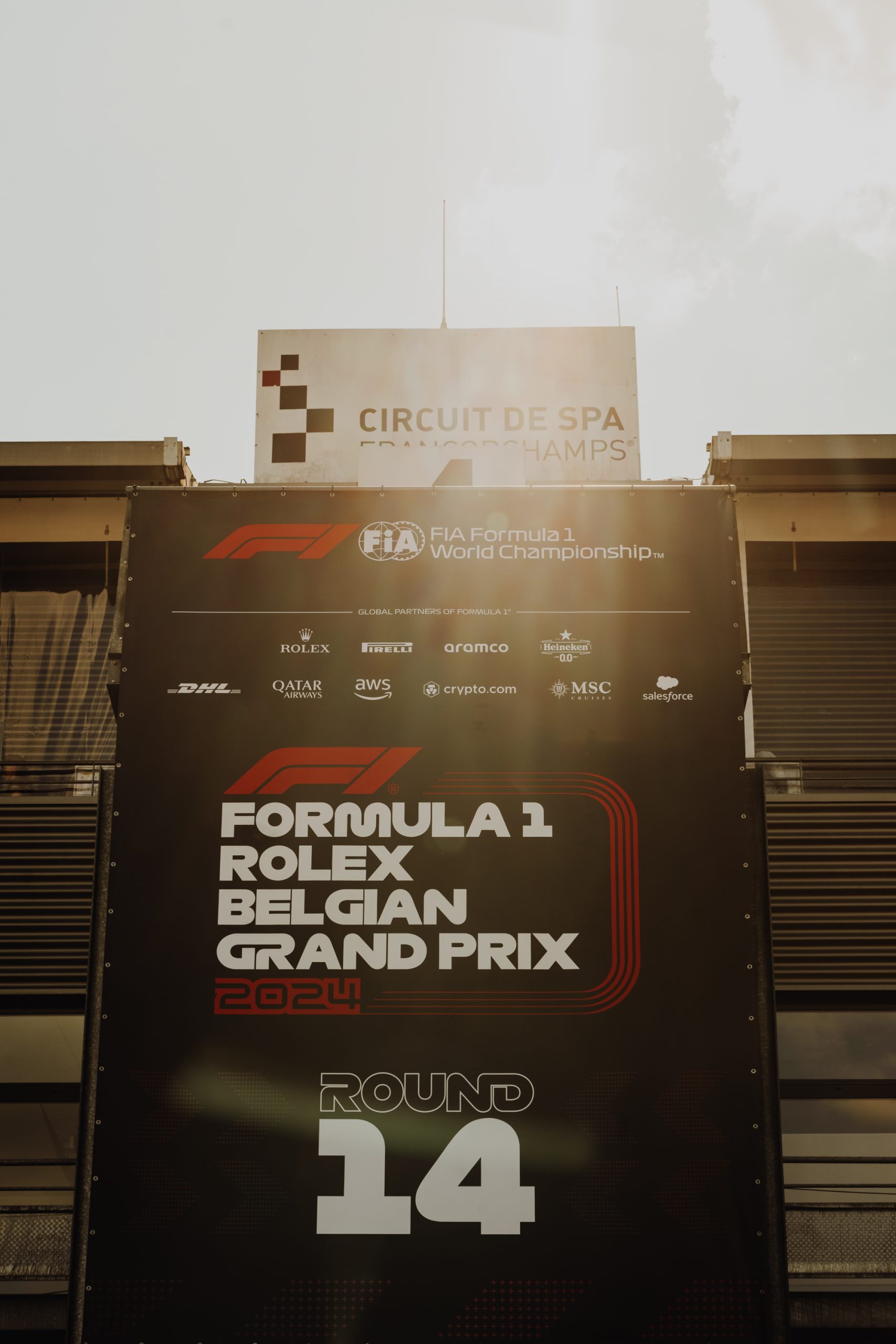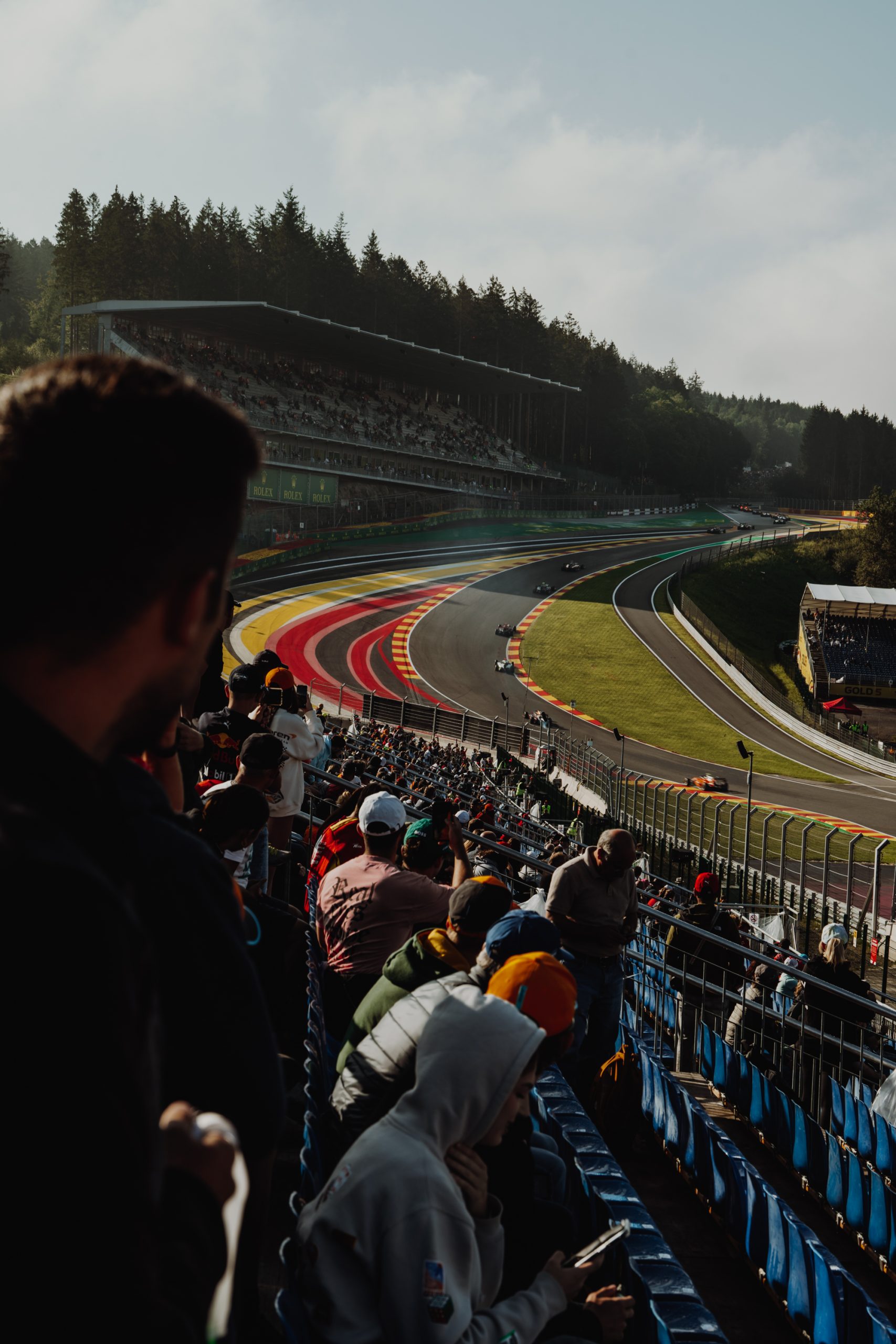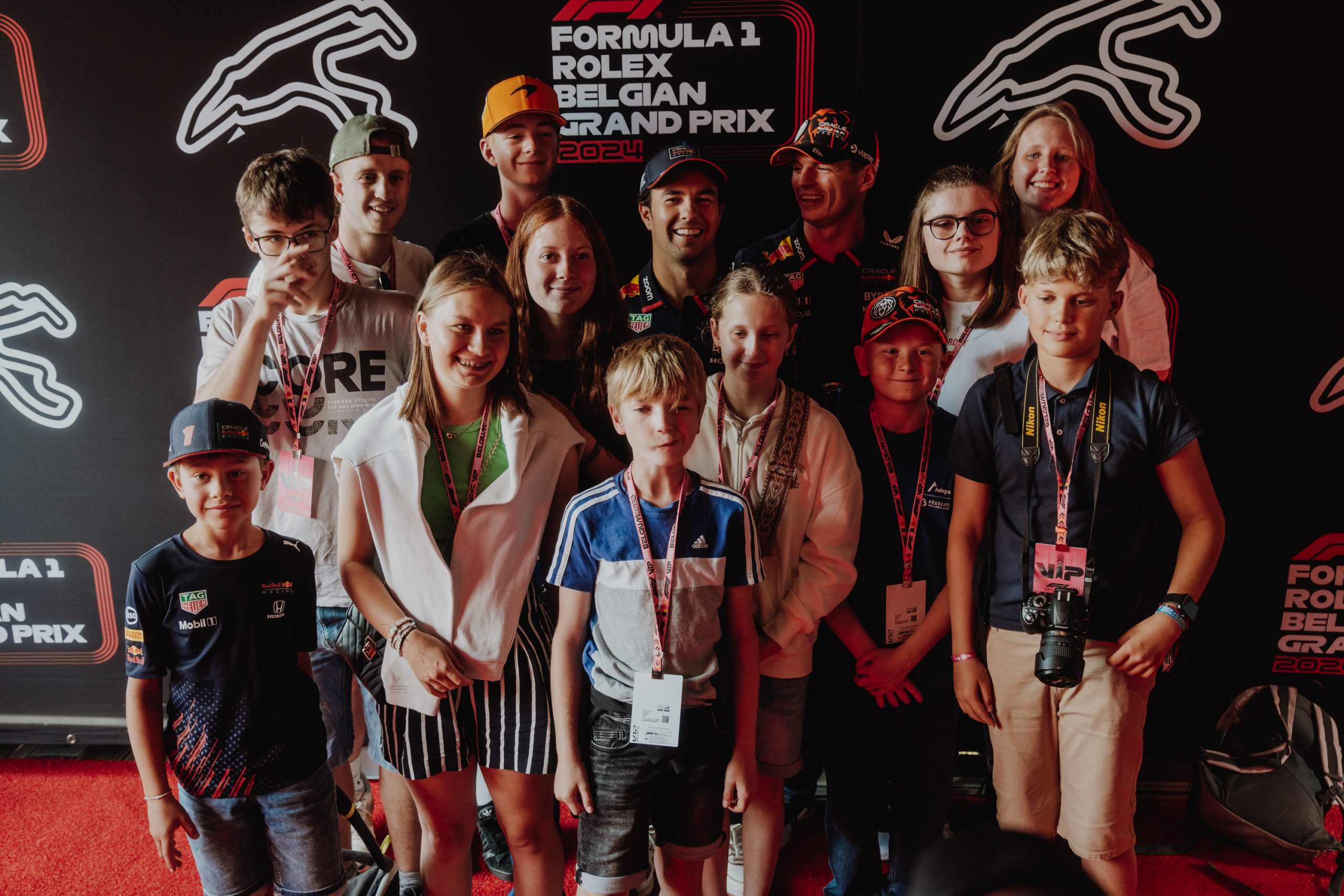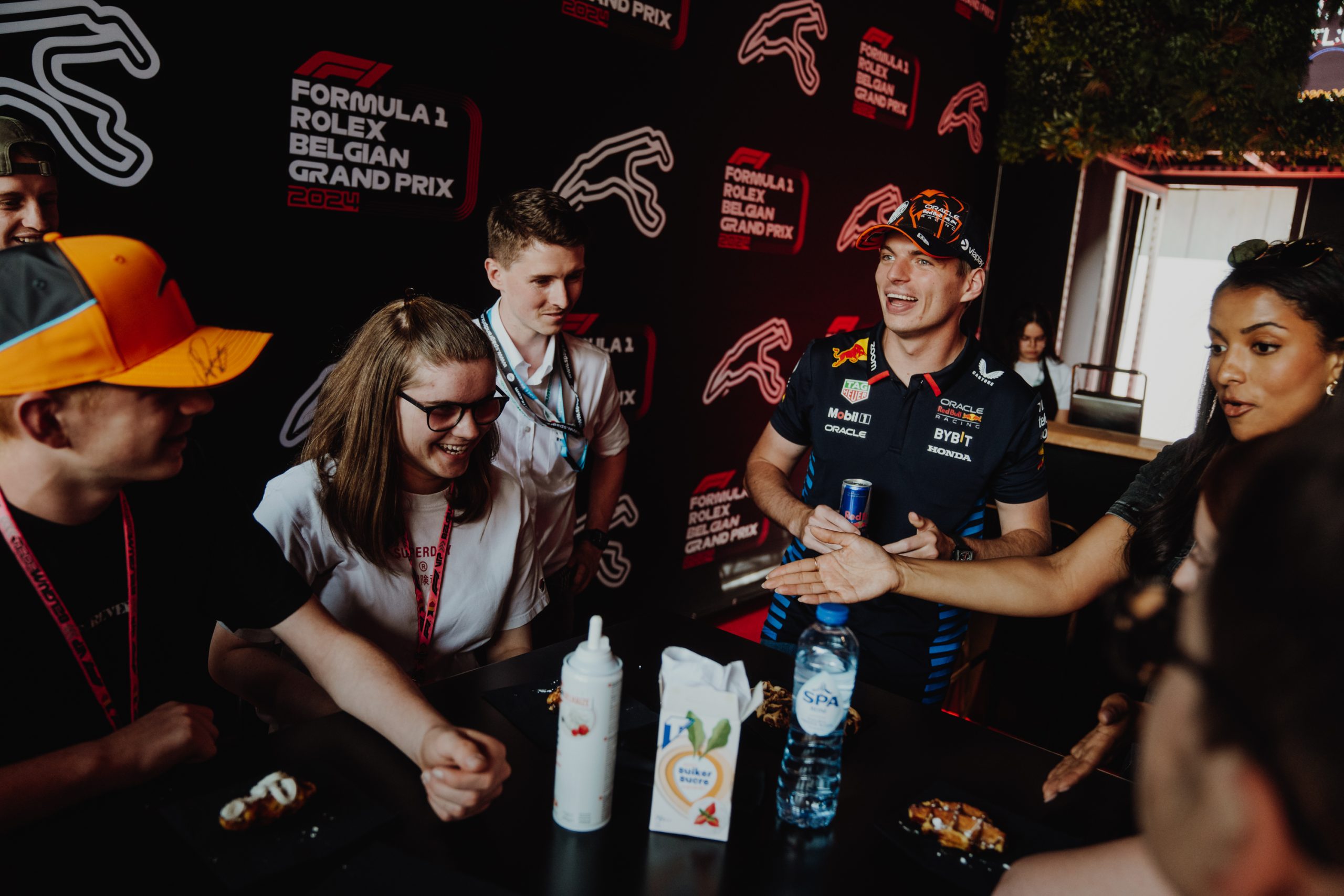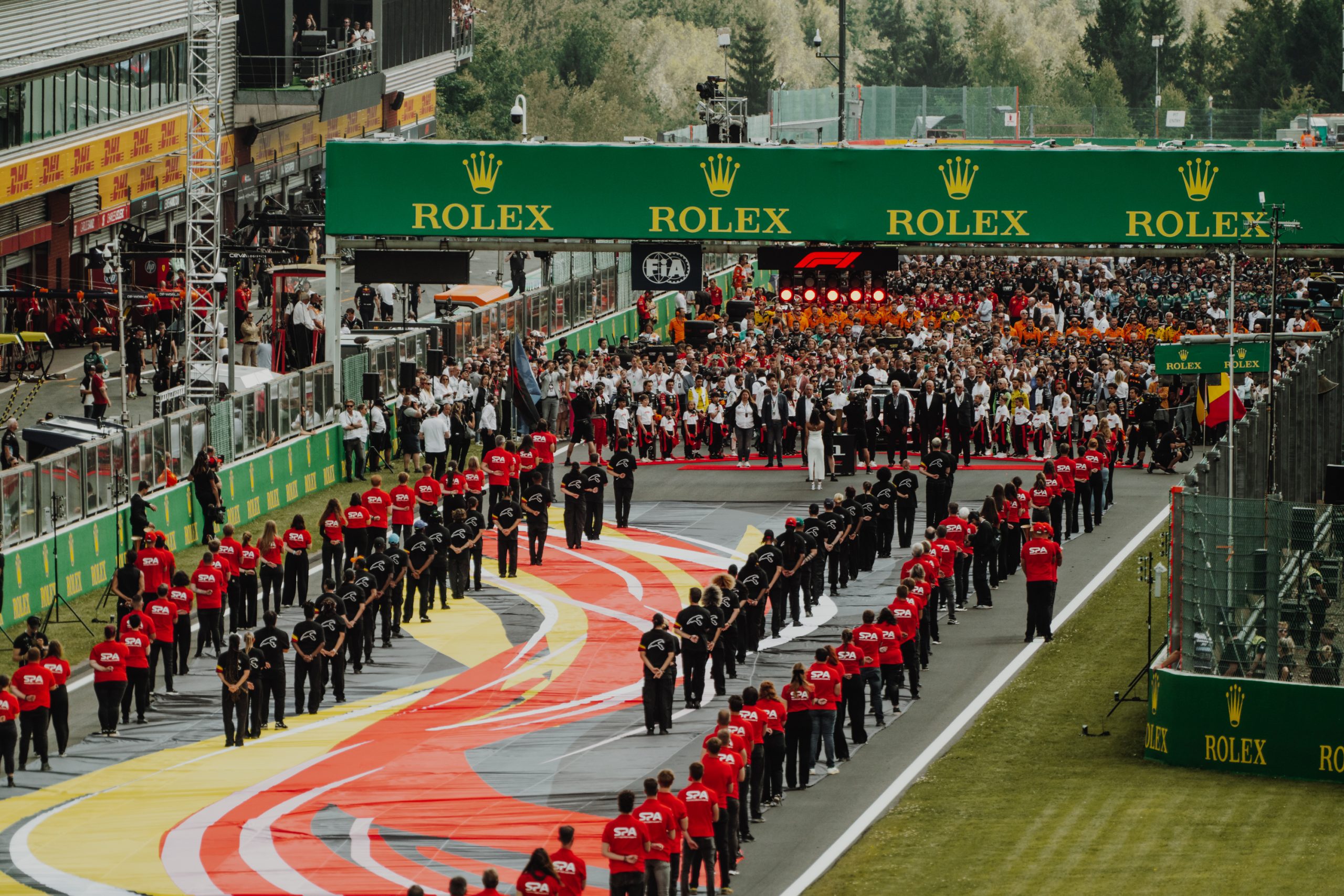Since 2018, Vanessa Maes and her team at SPA GP have been responsible for organising the Belgian Grand Prix of Formula 1, an event that attracts some 380,000 people. The CEO documents life at the head of the operation.
Each year, SPA GP welcomes the convoy of F1 teams and the 5,000 individuals it comprises to the Spa-Francorchamps circuit – hailed by drivers of all generations as “the most beautiful circuit in the world.”
“This is the beating heart of the operation!” exclaims Vanessa Maes from the SPA GP headquarters, which offers a commanding view over the circuit’s start line. At first glance, absolutely nothing suggested that she would one day become the head of SPA GP. A property expert by profession, she joined her father (and former boss) André Maes at the company’s inception in 2007. Initially working as Marketing Manager, she later took charge of VIP operations. Her role gradually expanded until she assumed overall leadership in 2018. “What was meant to be a short-term involvement has turned into something much bigger – and here I still am in 2025, with many more years to come, I hope,” she shares.
“F1 turns 75 this year, and the Belgian GP has been there from the very start”
Day-to-day, the CEO and her team of seven – whom she’s always keen to spotlight rather than place herself centre stage – are guided by two founding principles: to champion the “incredible and globally unique” asset that is Spa-Francorchamps, and to preserve the legacy of Formula 1. “Honouring the past, responsible for the future – that’s my mantra. F1 turns 75 this year, and the Belgian GP was there from the beginning. We’re all deeply aware of that heritage.”
Indeed, it’s that heritage that the Belgian GP relied on for years to ensure its place on the F1 calendar. But in 2025, that alone is no longer enough. “After the 2021 Grand Prix, Liberty [Media, F1’s owners] told us, ‘Having a historic circuit is nice, but that’s no longer sufficient. We won’t be coming back,’” recalls Maes. SPA GP even received a letter stating that the Belgian GP would be demoted to a reserve race. “We replied: ‘No, we’re going to prove to you that we’re worth continuing – and we’ll meet your standards,’” she says.
It’s no longer just about hosting a motor race. “Liberty is a massive operation. Yes, there’s the race, but there’s also entertainment, concerts, DJ sets – the whole show. Today, F1 is a complete experience that must appeal to a broad audience.”
And that determination has paid off. It’s 2025 and the Belgian GP remains on the calendar – and will stay for several more years. The organisers have succeeded in combining Belgian-Walloon DNA with a global event and its demands. Races are guaranteed until at least 2031, except for the 2028 and 2030 seasons at this point.
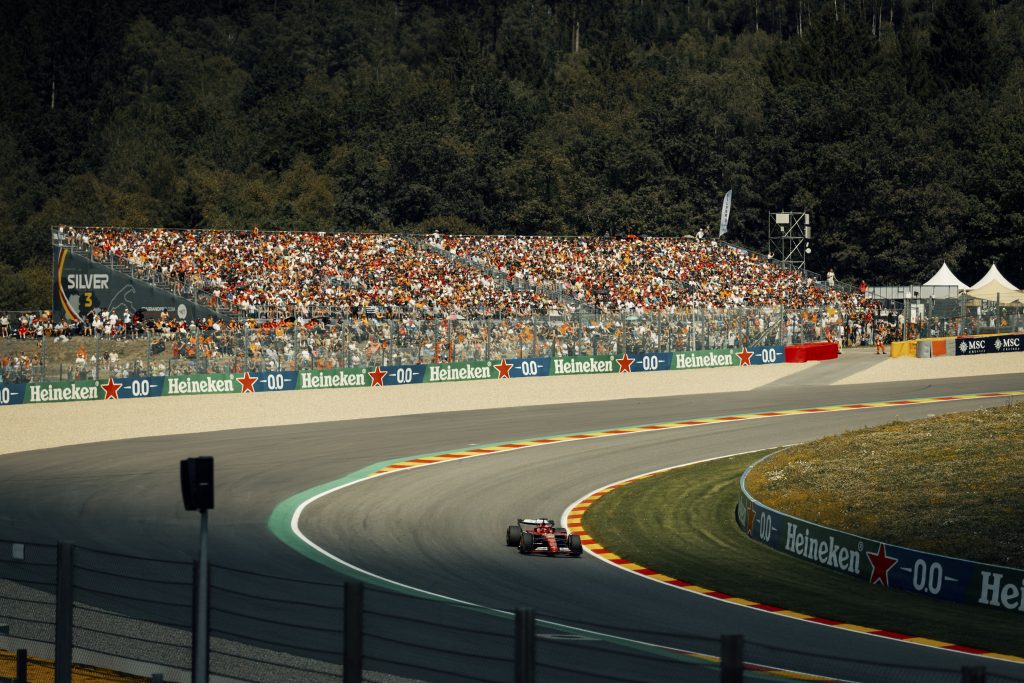
No pit stops for organisers
Organising the biggest motor race in Belgium is no short-term affair – quite the opposite. “In fact, preparations for the following year’s race begin over the Grand Prix weekend itself. We have to update the website so that tickets can go on sale by race Sunday. And the day after the race, we’re all back in the office. We’ve got one week to dismantle everything – except the grandstands – and return the circuit to pristine condition, just as we received it a week prior.”
Throughout the year, SPA GP also prepares mobility and safety plans. Accommodating 380,000 people doesn’t happen by chance – it requires enormous planning. From April, construction of the temporary grandstands begins. The team also makes work visits to other circuits – Maes mentions she’s just returned from the Saudi Arabian Grand Prix.
By the end of May, SPA GP enters the true “final stretch,” with days becoming extremely intense as the “weekend of the year” approaches. The workload is such that, in the week leading up to the race and during the competition itself, the team expands to around 20 people. Sleep becomes both scarce and precious.
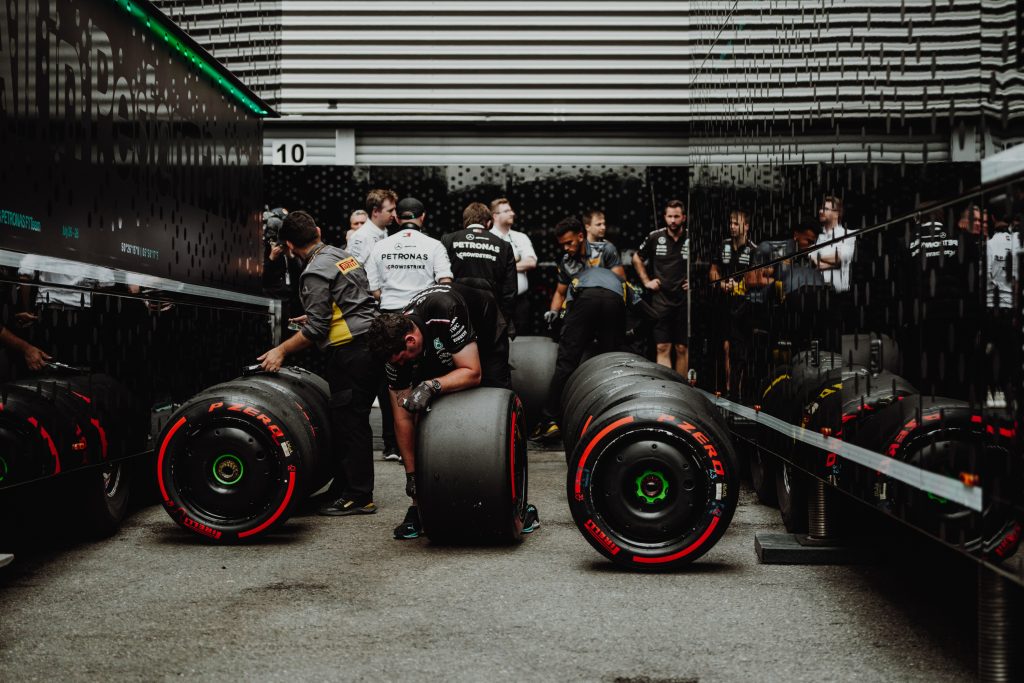
ESG Contributions
All this hard work pays off – with success evident in the grandstands and beyond. In 2024, SPA GP received an award from F1 for its ESG (Environmental, Social, and Governance) strategy. “It’s a recognition that perfectly aligns with our company’s values,” says Maes proudly. “Last year, for instance, we brought children from disadvantaged backgrounds on the Thursday to discover the behind-the-scenes world of F1. Across the whole weekend, we donated 2.2 tonnes of food to local charities. We also prioritise local suppliers and partners. And the teams themselves are becoming more environmentally conscious. The entire McLaren team travelled by train from the UK, while Aston Martin ships all its equipment by boat to Antwerp, before it’s transported on to the Ardennes.”
“In 2022, Deloitte assessed the economic benefit of the Belgian GP for Wallonia at €41.8 million – net of the region’s public investment”
SPA GP’s relationship with F1 has thus grown closer – as has its relationship with the Walloon government, which owns 100% of the organising company. “Let’s be clear: without the government, we wouldn’t exist – there would be no race. Various governments have recognised the importance of the circuit as a strategic asset for Wallonia and for Belgium, and its role in showcasing the region on the global stage. In 2022, Deloitte assessed the economic benefit of the Belgian GP for Wallonia at €41.8 million – net of the region’s public investment.”
Each year, the Walloon government absorbs SPA GP’s deficits. The 2024 edition is expected to record a financial loss of less than €3 million, following a €2.3 million shortfall in 2023. “This support from the Walloon Region must be viewed as a short-term investment. Every euro it invests in the Belgian Grand Prix yields a return of €9.67. That’s not insignificant when it comes to the economic balance of our region,” concludes Vanessa Maes.
Read more articles:
The World’s 10 Highest-Paid Athletes 2024
Villa Pétrusse – The Discreet Renaissance Of A Historic Jewel In The Heart Of Luxembourg
Luxembourg Faces Wealth Decline Amid Global Surge

